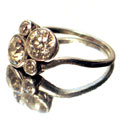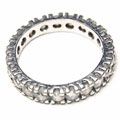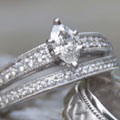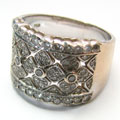The ring setting, also known as the mounting, is the part of the ring that holds the diamond in place (usually done in platinum or gold). Shop amazing wedding ring settings and browse the latest wedding ring styles. Thank you for visiting Country Wedding.
- Genuine Wool Is Known For Its Striking Style, Fine Feel, And Water Resistance
- Self band with fancy silver-tone 3-piece buckle set
- Genuine leather sweatband
- 4 5/8 Cattleman Crown 4 inch Brim
- 4 inch Brim Leather Hat Band with Hair on Hide Overlay Antique Gold-Tone Conchos
- Leather Hat Band with Hair on Hide Overlay Antique Gold-Tone Conchos STETSON Buffalo Pin Genuine Leather Sweatband
- Antique Gold-Tone Conchos STETSON Buffalo Pin Genuine Leather Sweatband Satin Liner Original Stetson Hat Box
- STETSON Buffalo Pin Genuine Leather Sweatband Satin Liner Original Stetson Hat Box 4X Quality Buffalo Felt Handmade in the U.S.A.
- Genuine 6X Fur Felt
- Cattleman crease crown
- 4' brim
- Pinch Front Crown
- 3 1/4 inch brim
- Crown: 4”
- Leather Hatband
- Drilex Leather Sweatband
- Three-piece buckle set adorns self band
- Proudly made in the U;S;A;
- Beautiful Wool Cowboy Hat
- Proudly made in the U;S;A;
- Material:This cowboy/cowgirl hat is made of high-quality 100% natural straw material,environmentally friendly.
- Size:L:14.9 inch x W:12.2 inch x H: 5 inch.4 inch deep crown,3.5 inch wide shapeable brim.One size with Elastic Band in side,whether you have a small or large head,these straw cowboy hats are designed to fit comfortable for women and men.
- With adjustable hatband for a comfortable fit.This cowboy/cowgirl hat won't blown off when it gets windy.Enjoy a comfortable,snug fit all day long.making it ideal for outdoor activities for women and man,such as ranch,hiking,camping or gardening.
- Breathable:These straw cowboy/cowgirl hats are breathable and comfortable design.with a long 3.5 inch brim that provides glorious shade to your face,block harmful sun rays from the eyes and face.Great for casual wear everyday.
- Timeless Western Design:These straw cowboy hats feature a classic western design,wide brim,tall crown,retro but classical.
- Featuring slimline proportions, the retro sunglasses for women from GUVIVI are designed with an oval silhouette that calls to mind the glamorous styles of the 90s that will take you from season to season.
- Super lightweight, very comfortable on the bridge of your nose, no sliding, and no pressure behind ears. Finished in classic colors with dark lenses for an everyday look. With these small narrow sunnies you are at the cutting-edge of trends.
- This tiny frame is specially designed for genuine power women. Graceful design and expressiveness are interspersed with classical chic. They are the ultimate summer accessory and great gift for her, whether it's for a birthday, anniversary, or just because.
- 100% UV protection lens, help restore true colour, protect your eyes from long-term damage by blocking harmful UVA and UVB rays.
- This vintage y2k oval frame is particularly suitable for heart-shaped, square, small faces, but also suits every other face shape, because the 90s sunglasses is a real all-rounder. Plastic frames combine durability and are comfortable to wear, very snug fit on the ears and nose
- Sizing Note: This item runs larger than standard sizes. We recommend checking the specific measurements of each size rather than relying on your usual size.Our chart includes hip, waist, thigh, inseam and length dimensions for accurate selection.If you prefer a precise look, consider sizing down one size.
- Double Layer Design Butterfly Flowy Shorts: Elastic waist design and openning crochet hems of this girls butterfly shorts provide greater freedom of movement for this womens flowy shorts, let you move freely and comfortably as you run, jump, twist and bend, These flowy running shorts for women are perfectly smooth fit around your body.
- Double layer Ruffle Tiered Design: The flowy preppy shorts for teen girls with elastic waistband has cotton linen fabric, soft and comfy, which does not rid up and doesn’t give you the feeling of granny panties.
- Occasion: The trendy summer flowy crochet shorts for women is perfect for everyday active, athletic, golf badminton, tennis, dance, swim, board, jogging, marathon, game competition, gym, explore, a group fitness class, running and cycling, hiking, Yoga, HIIT workouts, travel, bike, pilates and even every day casual wear in summer or fall.
- Note: We have XS size flowy shorts for teen girls, which can be served as cute clothes for teens 10-31 years old, teen girl gifts trendy stuff, cheer shorts, cute summer shorts, dance clothes, shorts that look like a skirt. We strongly suggest that you have your body measurements taken first, and then refer to our size chart for our cute high waisted preppy shorts before order, If you are in between size, order one size up for a looser fit as it has a drawstring at waist.
- Breathable Handmade Straw
- TWO DECORATED HAT BANDS: There are two different styles of removable hat bands, which can flexibly change the style and let you show your personality.
- HANDMADE: Each cowboy hat is handmade, exquisite craftsmanship shows a unique texture.
- SOFT MATERIAL: With the soft straw brim design, you can adjust the shape of the brim according to your needs and keep the perfect shape of the hat.
- BREATHABLE AND COMFORTABLE: The straw material makes this cowboy hat breathable even in spring, summer or warm seasons. The soft inner band absorbs sweat and is comfortable, and the brim effectively blocks harmful sunlight and protects your eyes and face.
- USE SCENARIO: Perfect for all kinds of outdoor activities, such as beach, garden, fishing, also perfect for rodeo, show off your western cowboy closet every day. The moldable brim allows you to design your hat as you like!
- luvamia womens jeans stretchy are made with stretchy denim fabric, which is comfortable and breathable. white jeans women wide leg 26 inch inseam.
- A pair of women white jeans features a high waist and a breezy wide leg , zipper and button closure, front patch pockets.
- Cropped with flare. This pair of white flare pants with flattering fit will show off your figure.
- These white wide leg pants for women suitable for work, western wear, country concert, nashville, night out, going out, vacation, etc.
- Our white pants women high waisted run true to US sizes. Size x-small fits size 0 - size 2, size small fits size 4 - size 6, size Medium fits size 8 - size 10, size Large fits size 12 - size 14, size X-Large fits size 16- size 18, size XX-Large fits size 20 - size 22.
Shop anytime 24/7 at Free World Mall.

 Bar Setting A bar ring setting uses circular bands of thin metal to hold the stones in place. Each bar has a stone on either side of it. Similar to a channel setting, except every two stones share a bar in between them.
Bar Setting A bar ring setting uses circular bands of thin metal to hold the stones in place. Each bar has a stone on either side of it. Similar to a channel setting, except every two stones share a bar in between them. Bezel Setting A bezel ring setting holds the stone in place using a thin band of metal to surround the diamond at the middle, either completely or partially surrounding the stone. It can be straight or scalloped at the edges and provides good protection for the middle and bottom parts of the stone.
Bezel Setting A bezel ring setting holds the stone in place using a thin band of metal to surround the diamond at the middle, either completely or partially surrounding the stone. It can be straight or scalloped at the edges and provides good protection for the middle and bottom parts of the stone. Channel Setting A channel ring setting holds the stone in place at the sides with no metal between it. It protects small stones better than a prong setting will, and will be less likely to get caught or snagged on objects. This is perhaps one of the more popular settings for wedding bands or anniversary bands.
Channel Setting A channel ring setting holds the stone in place at the sides with no metal between it. It protects small stones better than a prong setting will, and will be less likely to get caught or snagged on objects. This is perhaps one of the more popular settings for wedding bands or anniversary bands. Invisible Setting An invisible ring setting holds diamonds closely together and is concealed underneath the stone. It is a very nice way to increase the amount of light entering the stone and show off its brilliance.
Invisible Setting An invisible ring setting holds diamonds closely together and is concealed underneath the stone. It is a very nice way to increase the amount of light entering the stone and show off its brilliance. Prong Setting A prong ring setting holds the diamond by at least three thin, finger-like, metal prongs that are attached to the bezel and bent over the edges of the stone to hold it in place. Also known as a claw setting, the prong setting is the most commonly used style for solitaire engagement rings.
Prong Setting A prong ring setting holds the diamond by at least three thin, finger-like, metal prongs that are attached to the bezel and bent over the edges of the stone to hold it in place. Also known as a claw setting, the prong setting is the most commonly used style for solitaire engagement rings. Pave Setting Similar to an invisible setting, the pave ring setting is when the diamonds are fit into small holes and set level with the surface of the ring itself. All of the stones are set as close to one another as possible, so the piece of jewelry literally looks as if it’s been paved with stones.
Pave Setting Similar to an invisible setting, the pave ring setting is when the diamonds are fit into small holes and set level with the surface of the ring itself. All of the stones are set as close to one another as possible, so the piece of jewelry literally looks as if it’s been paved with stones. Tiffany Setting A Tiffany ring setting has 4 or 6 claw-like prongs and allows the most light to enter the diamond from all angles. It was developed by Tiffany & Co. in 1886.
Tiffany Setting A Tiffany ring setting has 4 or 6 claw-like prongs and allows the most light to enter the diamond from all angles. It was developed by Tiffany & Co. in 1886.









